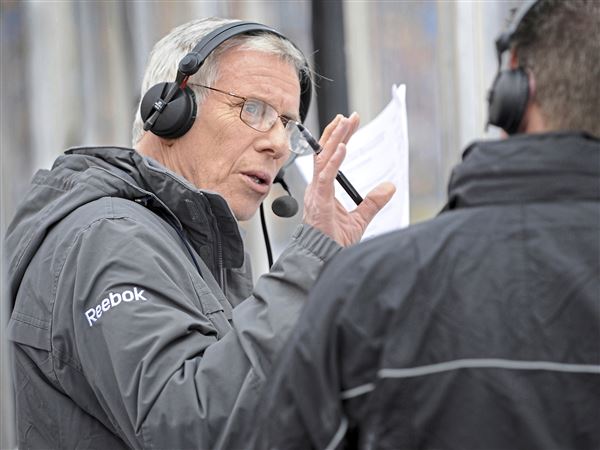The Pennsylvania Public Utility Commission voted Thursday to reject a company’s plan to reverse the direction of flow on the western half of the only pipeline that brings petroleum products from the Philadelphia area to Western Pennsylvania.
Laurel Pipe Line Co. and its parent, Buckeye Partners, proposed switching the direction of service between Pittsburgh and Altoona so Midwestern U.S. refiners could ship more gasoline and diesel to the middle of Pennsylvania.
The plan sparked vigorous opposition from coastal refineries on the eastern end of the 350-mile pipeline and fuel retailers, such as Sheetz and Giant Eagle GetGo, on the west, who said they and their customers would be harmed by the erosion of east-to-west service.
In an advisory opinion in March, Administrative Law Judge Eranda Vero recommended that the commissioners deny the reversal application — saying switching the direction of flow would cause “inconvenience and hardships” that “outweigh the loss experienced by Laurel.”
On Thursday, the commissioners unanimously agreed.
Both sides of the dispute argued that southwestern Pennsylvania customers would be better off if they prevailed.
Buckeye said reversing flow would provide the region greater access to lower-priced petroleum products from Midwestern refineries that are processing the abundant oil now coming from U.S. and Canadian sources.
The reversal’s opponents said customers benefit more from having access to competing fuel pipelines from the east and west — an advantage Western Pennsylvania would lose if it became dependent on a single region’s refineries. Currently, the Pittsburgh market is served by the Laurel pipeline from the east and three pipelines from the Midwest.
PUC Chairman Gladys Brown said the case record made it clear that both Philadelphia-area shippers and the Western Pennsylvania market would be negatively affected if the Laurel pipeline’s east-to-west service dead-ended in the middle of the state.
She also said Laurel failed to “provide any evidence showing why a change in rates” — as an alternative to its reversal proposal — “was not also a viable option for its bottom line.”
Buckeye Partners applied to federal regulators this spring for permission to ship fuel in both directions on the western half of the Laurel pipeline, even as it continued to pursue its application for full reversal at the PUC.
In a statement, Buckeye said it disagrees with the PUC’s decision but will abide by it. The company is moving forward with its plans for bi-directional service, which it says “will enhance competition and provide shippers and suppliers with more options while still increasing access to lower-cost North American-produced fuels for Pennsylvania consumers.”
The fuel retailers and refiners that oppose full reversal, a coalition known as Deny Buckeye, are also protesting the company’s plan for bi-directional service because they suspect it will diminish their ability to use the line.
On Thursday, the coalition filed a petition asking the PUC to block Buckeye from shutting down the contested section of the Laurel pipeline for two weeks in August — in the midst of the busy summer driving season — to prepare the line to accept new flows from the west.
The group also wants the PUC to require Buckeye to get state utility regulators’ approval before restricting when and how much fuel can be shipped from Philadelphia to Pittsburgh on the line.
Laura Legere: llegere@post-gazette.com.
Updated at 4:40 p.m. July 12, 2018.
First Published: July 12, 2018, 3:52 p.m.


















